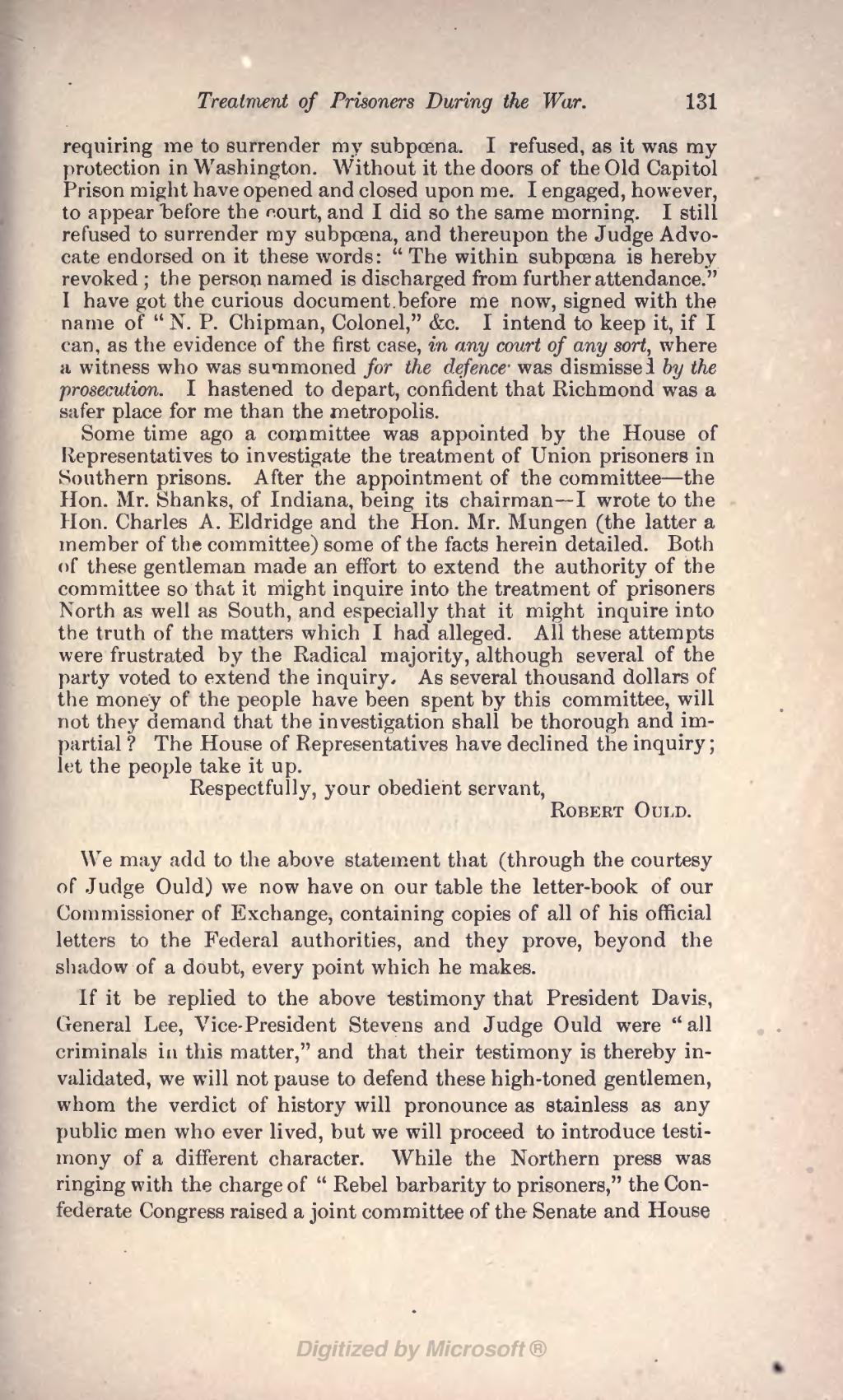requiring me to surrender my subpœna. I refused, as it was my protection in Washington. Without it the doors of the Old Capitol Prison might have opened and closed upon me. I engaged, however, to appear before the court, and I did so the same morning. I still refused to surrender my subpœna, and thereupon the Judge Advocate endorsed on it these words: "The within subpœna is hereby revoked; the person named is discharged from further attendance." I have got the curious document before me now, signed with the name of "N. P. Chipman, Colonel," &c. I intend to keep it, if I can, as the evidence of the first case, in any court of any sort, where a witness who was summoned for the defence was dismissed by the prosecution. I hastened to depart, confident that Richmond was a safer place for me than the metropolis.
Some time ago a committee was appointed by the House of Representatives to investigate the treatment of Union prisoners in Southern prisons. After the appointment of the committee—the Hon. Mr. Shanks, of Indiana, being its chairman—I wrote to the Hon. Charles A. Eldridge and the Hon. Mr. Mungen (the latter a member of the committee) some of the facts herein detailed. Both of these gentleman made an effort to extend the authority of the committee so that it might inquire into the treatment of prisoners North as well as South, and especially that it might inquire into the truth of the matters which I had alleged. All these attempts were frustrated by the Radical majority, although several of the party voted to extend the inquiry. As several thousand dollars of the money of the people have been spent by this committee, will not they demand that the investigation shall be thorough and impartial? The House of Representatives have declined the inquiry; let the people take it up.
Respectfully, your obedient servant,
Robert Ould.
We may add to the above statement that (through the courtesy of Judge Ould) we now have on our table the letter-book of our Commissioner of Exchange, containing copies of all of his official letters to the Federal authorities, and they prove, beyond the shadow of a doubt, every point which he makes.
If it be replied to the above testimony that President Davis, General Lee, Vice-President Stevens and Judge Ould were "all criminals in this matter," and that their testimony is thereby invalidated, we will not pause to defend these high-toned gentlemen, whom the verdict of history will pronounce as stainless as any public men who ever lived, but we will proceed to introduce testimony of a different character. While the Northern press was ringing with the charge of "Rebel barbarity to prisoners," the Confederate Congress raised a joint committee of the Senate and House
